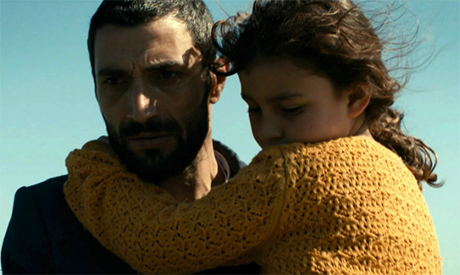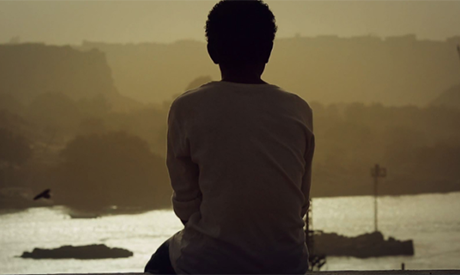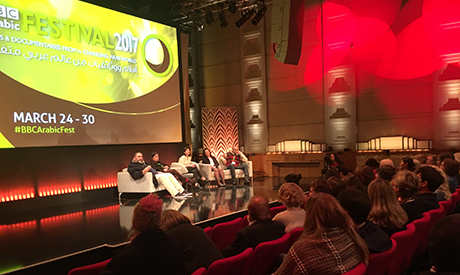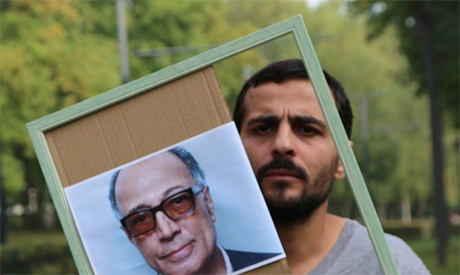On the first day of the BBC Arabic Film Festival, the radio theatre in central London was packed with an audience of over 300 people who signed up to experience stories unfolding in a world different from theirs.
The documentaries scheduled showcased stories from Egypt and Syria, and were followed by a panel discussion with the filmmakers, and questions from the audience.
Five short films were screened in the morning, and two feature-length documentaries in the afternoon and evening. All films touched on very delicate subjects of dreams, whether personal or collective, and losses, displacement, hope, despair in a changing Arab world.
Tales from Egypt
The short films were mostly artistic and innovative in form. While none had narration; some had beautiful prose or poetry, or songs by the films’ protagonists.
Even though most of the films were first time productions for the filmmakers, both picture and sound were technically impressive.
The first short film was 'Aida’, directed by an Egyptian Film Institute student, Maysoon El-Masry.
It captures the life of a very poor old woman who lives in Alexandria and trades flowers for smiles, cigarettes and some food in the Alexandrian traffic lights and main streets. She goes home to an empty house every day, but for her Siamese cat.
We follow her as she gets ready to leave home, puts on her floral shirt over her night dress, her two mismatched socks, and a colorful yellow headscarf. She almost slides her body down the stairs till she reaches her parked wheelchair at the entrance of the building, heading out every day.
This silent, observational film alludes to the myth of Sisyphus, condemned to ceaselessly roll a rock to the top of the hill only for it to fall back down again. Here we see Aida, the oldest flower vendor in Alexandria, peddling flowers from a used wheelchair as she has been doing for the past 50 years.
Aida is a familiar face to most Alexandrians, but her story remained a mystery. The short film leaves us with a feeling of admiration and love for the old lady, and compassion for aging and loneliness.

Mare Nostrum (Photo: Still from Mare Nostrum)
The second film, ‘Jareedy,’ also came from Egypt, by experienced filmmaker Mohammed Hisham.
Jarredy is a magical-realist story that evokes the traditions of the lost land of gold, old Nubia. The allegory is told through Konnaf, a young wide-eyed boy who faces and overcomes his fear of water.
His goal is to reach a rock in the middle of the Nile by a jareedy, a small row-boat common to the river banks on which he lives. Throughout his journey to conquer his fear and realise his dream, he forms an extraordinary friendship with the old boat maker who tells us the story of Nubia and much more.
The film takes us on a visually rich and colourful journey through the River Nile, the village school, the streets of the picturesque Gharb Soheil village, built in imitation of the old Nubian villages that were flooded with the construction of the Aswan High Dam, and vibrant Nubian houses with colourful doors that open to endless dreams.
The movie is a treat to the eye and the ear, artistically crafted, with Nubian songs that evoke a dreamlike state.
Written, directed and produced by Hisham, it is the first film in Nubian, a 5,000 year-old language spoken in Nubia that has no written form. Unknown to most people, it carries the movie, subtitled in English and Arabic.
In the discussion after the screenings, an audience member asked Hisham why he chose the subject of Nubia, even though he was not from there.
"First I was intrigued by the small jareedy, the small boat in the strong current of the Nile and small children using it. I wondered at their skills maneuvering the boats with their little hands. I explored Nubia as a tourist and realised how unjust it was that there was not one film in the Nubian language, even though this authentic language is 5,000 years old," Hisham said.
Responding to a question on production challenges, Hisham explained how he tried to tackle the transcription and translation of the unwritten Nubian language.
“I started transcribing in Arabic letters, and then tried writing in English letters, and failed.
In the end, the audio was divided in parts, the director would say the Arabic part and the young actor would say it in Nubian, but “no one understood exactly what they were saying in Nubian.”

Jareedy (Photo: Still from Jareedy)
Syrian stories
Another film screened that day was titled ‘Fate, Wherever It Takes Us’ directed by Kadar Fayyad, a Syrian tutor on human rights issues.
'Kadar' means Fate. In this short, self-reflective film, Fayyad narrates her own experience of leaving her homeland Syria in 2010 to pursue a master’s degree, only to realise she can’t return home and was now a refugee who has to fight for a living and legal status.
Through poetic, bitter-sweet descriptions, she takes us through her journey from the mine-fields in Syria to asylum in Jordan and other unexpected places, shedding layers while giving a face to a contemporary history that is familiar by now.
This is Fayyad's debut film, experimentally shot with a mobile camera, in her own home in Amman, Jordan.
She told Ahram Online about the challenges she faced in telling her story at this difficult time.
"I didn't want to involve anyone from my family back home in Syria. My name was listed as wanted on the border as I was a former activist, my brother was arrested three times, my father was arrested twice and kidnapped once. Our house was raided and the whole Syrian situation was so tough and emotional for me.
"But now, two years after the film was made and shown in several Arab and European countries, I see it with a different eye. I feel empowered and want every woman to tell her story. It may not be the best film, but it's important to tell our stories to the world and to ourselves," said the determined filmmaker and activist.
Panelist and festival director Sheyma Buali asked Fayyad, "Fate is a very experimental non-linear film with poetry and singing. Why did you choose to tell the story this way?”
Fayyad had no answer to that, but described her spontaneous process.
"I downloaded a phone application and started filming scene by scene. I remembered my home town, and the childhood songs specific to that region and started singing. I was testing the camera then, and made a mistake with the lyrics but thought to leave it because we are imperfect. I wanted to keep it that way,” Fayyad said.

Discussions at the Radio Theatre (Photo: Lina El-Wardany)
The fourth film was also about Syria. ‘Searching for Abbas Kiarostami’ is directed by a non-traditional, playful and absurd performance duo, the Malas twins, Ahmed and Mohamed.
In this unusual film a man roams the cafes, parks and metro stations of Paris, seeking the renowned Iranian director Abbas Kiarostami, while holding a large frame of the director's picture.
The man wants to speak to Kiarostami about Syria and reflect on the loss of artists there. He wants Kiarostami to tell his government to stop the bombing of Syria. This film is an earnest tribute to cinema and a eulogy to the Syrian filmmakers lost in recent years of war.
The fifth and last film, also about Syria, was very powerful, leaving the audience with feelings of anger and sadness.
‘Mare Nostrum’ is directed by filmmaking couple Rana Kazkaz and Anas Khalaf who now live in Jordan after leaving Syria due to the conflict.
The film starts with a shocking scene where a father takes his eight-year-old daughter on a long jetty on a beach and throws her in the middle of the Mediterranean to watch her drown.
Someone rescues her and takes her to a small room with one shared small bed, and they share their little food, and meager covers, as the girl cries herself to sleep.
The father tries to drown her again, nearly drowning with her once. When they both cry, so does the audience.
There is nearly no dialogue until the last scene when we see news footage of a boat drowning with Syrian refugees trying to flee to Europe and reality is juxtaposed with fiction.

Searching For Abbas Kiarotsami (Photo: Still from Searching For Abbas Kiarotsami)
In response to an audience question, the couple explain how the idea for the film came to them as they watched on television another refugee boat sinking.
“It was heartbreaking to hear the judgment of ‘Why don't they just stay where they are?’ We wanted to see if people are going to judge the father who wants to drown his child. We wanted to change the perspective; you cannot hate him when you understand it's out of love that he did what he did.”
They further explained how they could have easily been on the same ill-fated boat if it hadn’t been for their French and American passports.
On why they cast their own daughter, and why a girl not a boy, Kazkaz said: “We chose a girl, as the father-daughter relationship looked more vulnerable to us.”
“First we held auditions, and didn't want to cast our daughter. We chose a girl, but there was no chemistry between her and the actor Ziad. Then we invited him to our home one day, and there was a lot of chemistry between them,” the director added.
The BBC Arabic Film Festival opened 24 March and runs until 30 March screening films from the Arab world.
For more arts and culture news and updates, follow Ahram Online Arts and Culture on Twitter at @AhramOnlineArts and on Facebook at Ahram Online: Arts & Culture
Short link: